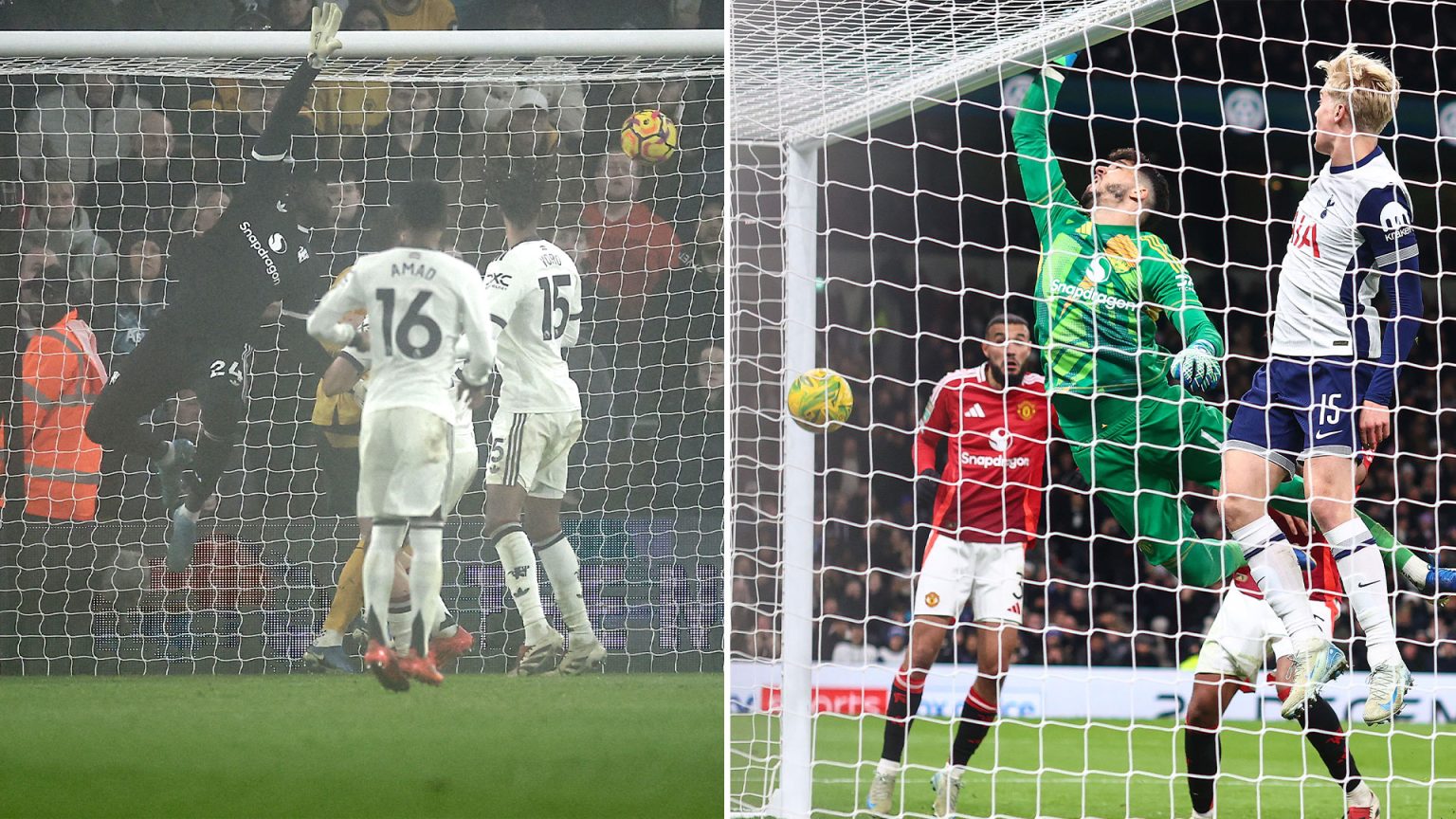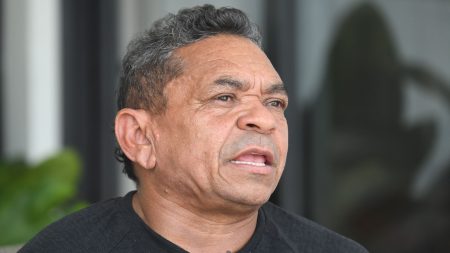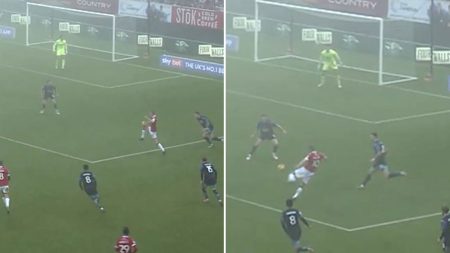The Manchester United fanbase erupted in a torrent of criticism directed at goalkeeper Andre Onana following a calamitous concession directly from a corner during their match against Wolverhampton Wanderers on Boxing Day. This marked the second instance in a single week where United had succumbed to such a goal, amplifying concerns about their vulnerability to set-pieces. The incident occurred just moments after Bruno Fernandes received his marching orders for a second yellow card, further compounding United’s woes in a tumultuous opening to the second half. Matheus Cunha’s seemingly innocuous in-swinging corner caught Onana off guard, sailing over his head and nestling into the far corner, gifting Wolves an unexpected lead. The replays suggested that Onana’s positioning and awareness were culpable, appearing to be preoccupied with the movements of Matt Doherty and Santiago Bueno in the box, while neglecting the flight of the ball itself. This echoed a similar blunder by United’s reserve goalkeeper, Altay Bayindir, during the midweek League Cup defeat against Tottenham Hotspur, raising serious questions about the team’s training and preparation for defending set-piece situations.
The frustration among United supporters was palpable on social media, where many expressed their exasperation at the recurring errors. Some questioned Onana’s competence, while others lamented the team’s broader struggles with set-piece defending, which has become a glaring weakness. The stark statistic revealing that United had conceded ten set-piece goals already this season, eight of which occurred in their last seven games under manager Ruben Amorim, served to underscore the severity of the issue. Even former United stalwart Rio Ferdinand, usually outspoken in his analysis, seemed rendered speechless by the incident, offering a simple “No comment” on social media, further highlighting the gravity of the situation. One fan’s response to Ferdinand encapsulated the prevailing sentiment, expressing annoyance at the team’s apparent inability to learn from their mistakes and address their defensive frailties.
The incident involving Onana’s failure to deal with the corner kick brought into sharp focus the broader issue of Manchester United’s vulnerability defending set-pieces. Conceding ten goals from such situations in just a handful of games exposed a systemic flaw that demands urgent attention and rectification. The fact that two different goalkeepers committed almost identical errors within the span of a week strongly suggests a deficiency in coaching and preparation rather than individual lapses in judgement. The coaching staff must meticulously analyze the patterns and vulnerabilities that are being exploited by opponents and implement tailored training drills to address these weaknesses. This could involve practicing specific defensive setups, emphasizing player positioning and communication, and developing strategies to counter various set-piece routines.
Furthermore, individual players must take responsibility for their actions and strive to improve their performance in these critical moments. Goalkeepers need to be assertive and decisive in claiming aerial balls, while defenders must be alert to potential threats and maintain positional discipline. Effective communication between players is essential to ensure that everyone is aware of their responsibilities and can react cohesively to prevent the opposition from capitalizing on set-piece opportunities. The onus is on each individual to commit to improving their defensive awareness and execution to mitigate the risk of conceding further goals in this manner.
The repeated concessions from set-pieces also raise questions about the team’s overall defensive organization and strategy. The coaching staff needs to review their approach and consider adapting their tactics to better neutralize the opposition’s threat from dead-ball situations. This could involve implementing zonal marking systems, man-marking specific opponents, or deploying a combination of both approaches depending on the situation. It’s also crucial to analyze the strengths and weaknesses of the opposition and devise targeted defensive strategies accordingly. By meticulously studying opponents’ set-piece routines and identifying potential vulnerabilities, United can tailor their defensive approach to counter specific threats and minimize the risk of conceding further goals from these situations.
In conclusion, the latest concession from a corner kick against Wolves served as a stark reminder of Manchester United’s ongoing struggles with set-piece defending. While individual errors undoubtedly played a role in both incidents, the recurring nature of the problem points towards a deeper systemic issue. Addressing this defensive frailty requires a comprehensive approach that involves improved coaching, enhanced player responsibility, and tactical adjustments. Only by implementing these changes can United hope to eradicate this recurring weakness and solidify their defensive performance. The team must prioritize set-piece training and develop a more robust and effective defensive strategy to prevent further embarrassment and ensure that they are not consistently exposed in these crucial moments. The upcoming games will be a crucial test of whether they can learn from their mistakes and rectify this glaring vulnerability.











